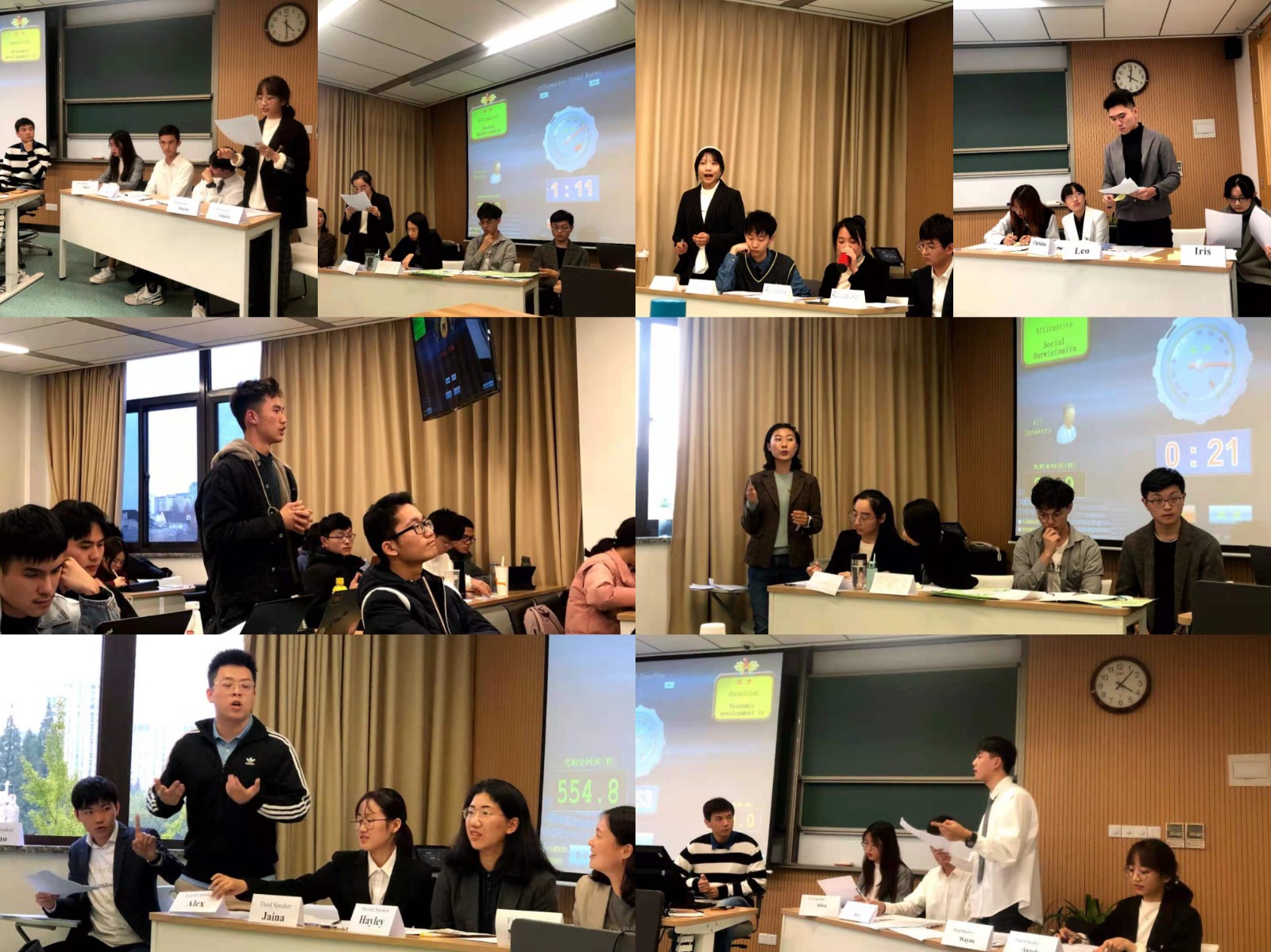Economic History – Undergraduate International Program in Economics (UIPE) Course
A 4 Fudan-credit course
Words from the Instructor—Prof. Dan Li

My dear students, I am Dan Li- a professor in the School of Economics, Fudan University. My research fields include Economic History, Development Economics and Regional Science and Urban Economics. My research focus is Chinese Economy, both historical and modern. I started to teach Economic History course since last year – Fall 2020. This course is designed to provide an opportunity for undergraduate students to understand the economic development of our human society in the long-run, from the origin of civilization to present. I am looking forward to seeing you in class!
Course Description:
This course is designed to provide an opportunity for students to understand the economic development of world in the long-run, from the origin of civilization to present. It will cover some important historical events in the human history, for example, the origin of civilization, religion reform, Industrial Revolution, Columbian Exchange, Black Death, the Great Depression, World Wars and so on. Unlike history course which mainly focuses on historical facts, this course applies economics to history and history to economics. After you finish the course, you are supposed to understand the historical origins of our present economic and social system, to know how the study of history will enrich your understanding of economic theory, to have a deeper understanding of the process of economic and social development and its causes and consequences, and to be alert to ongoing changes and prepare yourself better for the future.
Prerequisites:
Introductory micro- and macro-economic or above
Basic Econometrics or above
Basic knowledge of world history
Textbooks:
1. Rondo Cameron and Larry Neal, 2015. A Concise Economic History of the World: From Paleolithic Times to the Present, Oxford University Press
2. Harari, Y. N. (2014). Sapiens: A brief history of humankind. Random House
Contents
The course includes 9 broadly defined topics covered important events and issues in the mankind history, from the Neolithic time to the present. In addition to regular lectures, we will have 4 sessions for debates. Each module will be covered in one to four sessions. Each session consists two credit-hour lecture time (1.5 hours). The details of our course are as follows:
Module 1: Introduction to Economic History (1 session)
Module 2: From Stone Age to the Rise of Ancient Empires (2 sessions+1 catch-up)
Module 3: Early Modern Growth (3 sessions)
Module 4: The New World, Columbian Exchange & Slave Trade (3 sessions+1 catch-up)
Module 5: The Industrial Revolution and the Great Divergence (3 sessions+1 catch-up)
Module 6: The Great Wars (2 sessions)
Module 7: Rebuilding the World (3 sessions+1 catch-up)
Module 8: Crises, Gender and Income Inequality (3 sessions +1 catch-up)
Module 9: The History of the Future (1 session)
Requirements and grading:
If students are registered for this course, you will need to complete the following assignments:
Participation and discussion: Students are expected to attend all classes, read the assigned readings, and come to sections prepared to discuss them. The participation and class discussions are weighted 15% in the course grade.
Reading notes: In each month from Oct to Dec, students are required to write a short reading note (no more than 500 words) for one of the papers listed in the course materials and submit this note to your TA before the end of each month through e-learning system. In total, you are required to submit 3 reading notes, which are weighted 15%.
Group debate and presentation: There are four debates to be held in this course. The instructor will assign in-class students into 8 groups and each group will consist 3 or 4 students. Each two-group will be paired to debate on one topic provided by the instructor. For on-line students, they will be one team and do a video presentation on a selected topic. Every student is required to participate in the debate/presentation. The performance will be graded by instructors, TA and your fellow classmates. Group member in the same team will get the same grade. The debate/presentation counts 30% in the course grade.
Term paper: Students are required to complete a term paper as your final exam. Term paper should be at least six pages in length (1.5 space, including tables, figures, and references). Guidelines for the term paper will be provided in the class. Hopefully, at the end of this course you will have written a well-argued paper that you will be willing to show to others as a sample of your writing. Term paper counts 40% in the course grade.
Extra credit: Students who volunteer to be a debate host will be awarded extra 5 points. In total, 4 hosts are needed. The first come, the first served.
Some Endorsements from the last year (2020)’s class

Class Fall 2020: 40 participants Course Evaluation:91.6/100
- A very interesting course that allows students to see history from the perspective of an economist! Would strongly recommend!
- 李丹老师非常风趣,英语能力超强,上课总是能够吸引大家的注意。
- 老师对学生要求较高,能督促学生花更多精力在这门课程的学习上;老师本身讲课也很有意思
- 该课程能够帮助学生延展对社会历史的认识,培养批评性思维和逻辑思维,我认为这对学生的全面发展是十分有益的。
- 教师善于使用各种授课形式手段引发我们思考,能将历史概念深入浅出地介绍出来。
- Rather interesting and informative course, I would even say somewhat mind-opening. Thank You!
- 有意思的老师。内容很有趣且充实。教授知识全面。
- 该课程鼓励学生主动思考与讨论,很好的帮助了学生形成宏观的历史与社会观。希望教师能够继续保持幽默风趣的教学风格和形式丰富的教学内容。
